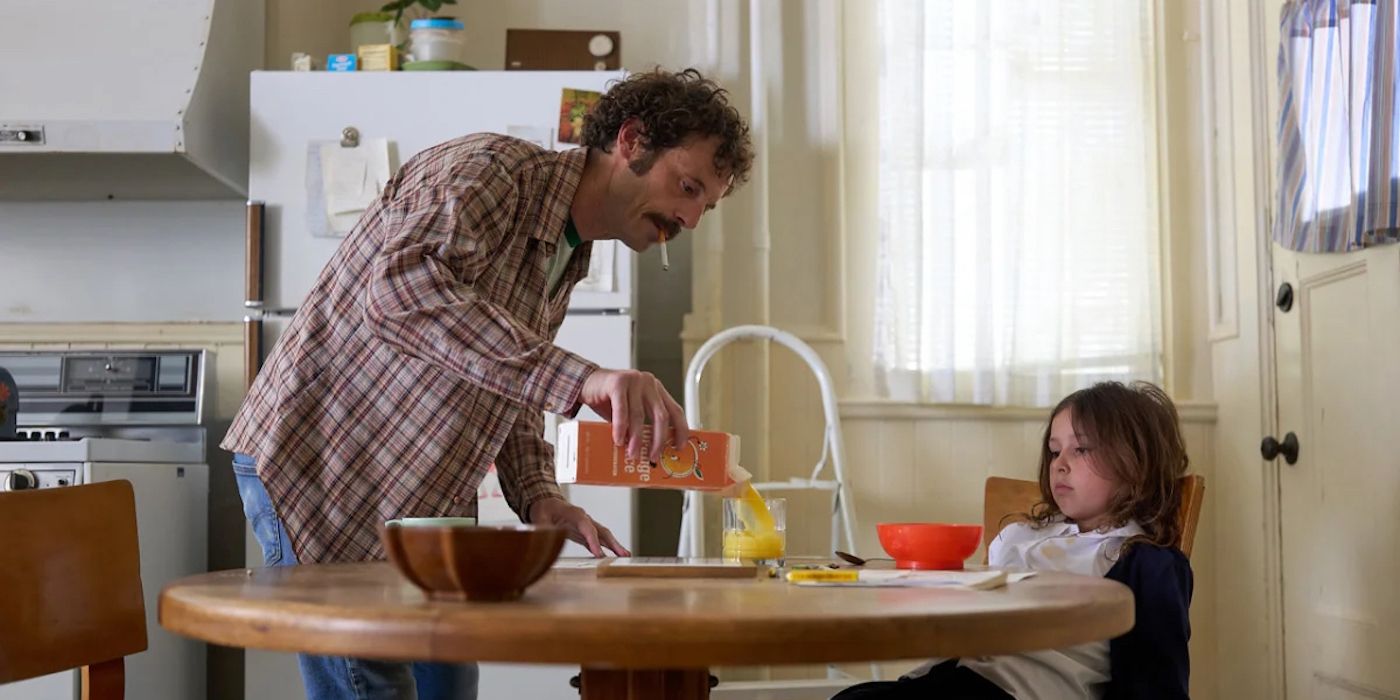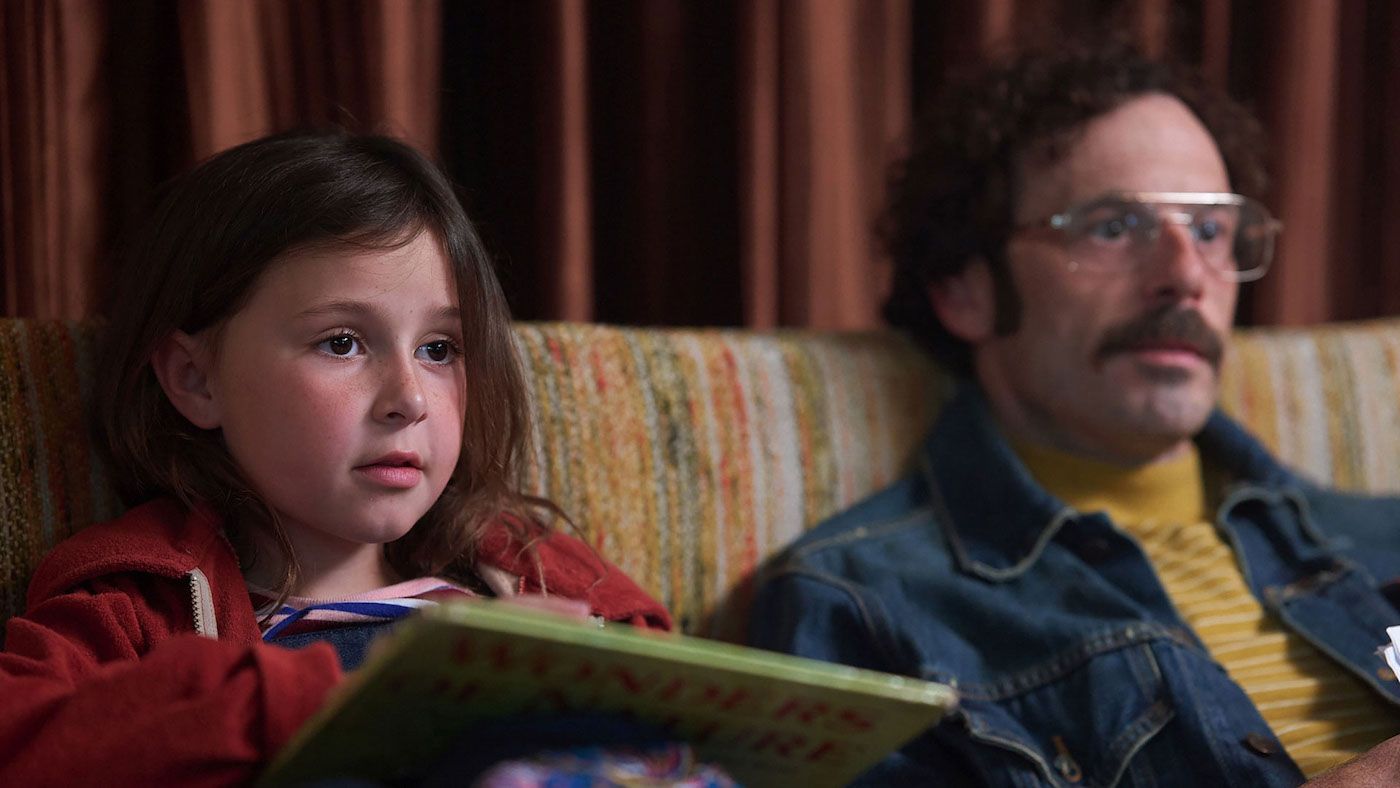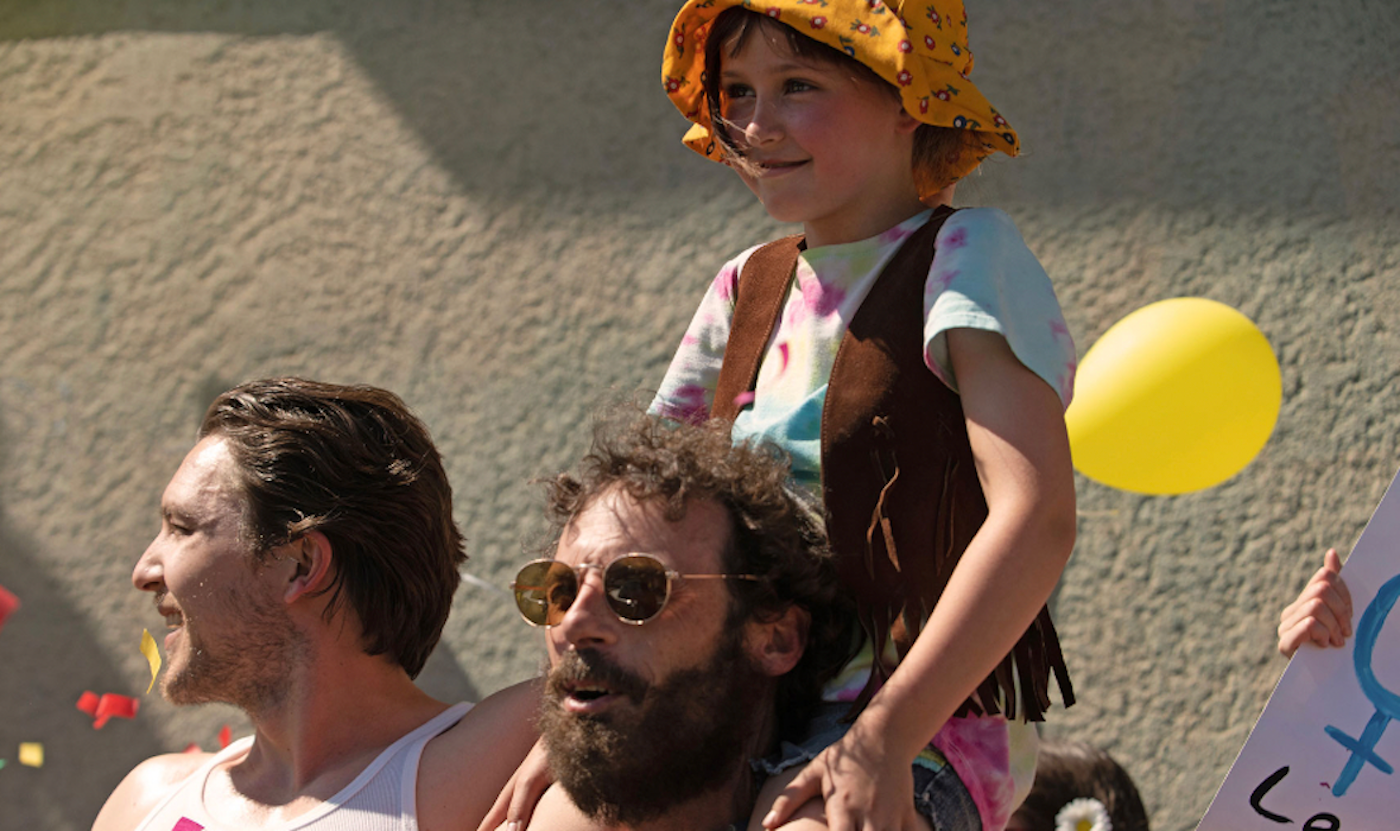Fairyland, the directorial debut of Andrew Durham, starts with Alysia (Nessa Doughterty) learning that her mother has died in a car crash. She overhears her father Steve (Scoot McNairy) on the phone, getting the details of the accident that will leave her motherless, and will throw her life in an entirely new direction. Based on Alysia Abbott’s memoir of the same name, and with a screenplay written by Durham, Fairyland explores the difficulties of being thrown into responsibility, the difficulties of parenthood, and trying to find out who you are much later in life than expected.
Fairyland begins in 1974, as Steve moves Alysia to San Francisco, as he attempts to become an author. The two move into a questionable apartment with some surprising roommates, including a drug dealer, a drag queen, and a guy who sometimes just sleeps on the couch. From very early on, we see that while Alysia needs a parental figure at this time, Steve is also in the process of finding himself as well—a search that may not be beneficial to his daughter’s upbringing. Steve often leaves his daughter alone at too young of an age, stating that he’s teaching her independence, as he explores relationships with men and the drugs that come in and out of their apartment. Fairyland never condones or condemns Steve’s actions, but rather, shows a man who feels lost and needs to find himself, even if that might have a negative impact on his daughter going forward.
The 1970s segment gives us a baseline for the problems inherent in this father-daughter relationship, and feels almost a bit too twee in this decade. However, Fairyland comes to life when the story jumps to the 1980s, where Alysia is now played by Emilia Jones. As Alysia gets older, so does her forwardness in addressing her father’s neglect/push for independence. Durham compares and contrasts these two in subtle ways, as they both search for the discovery of who they want to be.
Like in CODA, Jones plays the daughter of a family whose methods she questions beautifully. Here, she's asked to almost be the adult in this relationship, as her father returns home in the middle of the night, and usually putting his own interests ahead of his daughter. But especially as the story progresses, Jones does an excellent job of the duality of difficult parents—the struggle of hating their choices and how they might act, but still loving them unconditionally.
But it’s McNairy who is brilliant here, finally getting a lead role to really sink his teeth into. Despite his debatable parenting style, we feel how Alysia feels, not sure what to make of his choices, but still loving him regardless. We usually see Steve through the eyes of Alysia, but when we don’t the moments are heartbreaking and make us understand his difficult search for love and understanding. In one particularly excruciating scene, Steve goes to a cowboy gay bar, where he sits in the back, watching as other men couple off, while he sits alone, watching, and wishing he could find someone. It’s a painful scene, and we understand all of Steve’s longing, desires, and absence of love without McNairy ever saying a single word.
When Jones and McNairy are playing off each other, Fairyland really finds the beauty of this story. Especially in the third act, as this relationship becomes more difficult and uncertain, both present themselves as people who struggle with the balance of doing what's right for themselves and doing what's right for each other. Even though they make mistakes in their search for self, these choices are always grounded in an understanding that sometimes in order to find our own independence, there's no other option but to neglect.
Fleshing out this world is a lovely collection of supporting performances, all of which further open up our understanding of who Alysia and Steve are. Geena Davis plays Alysia's well-meaning grandmother who isn’t sure if Steve is making the right choices with his daughter. While this role could've bordered into villainous, Davis shows that she is simply concerned, wanting to give Alysia the best if her father can’t provide that. Also quite good is Cody Fern as Eddie Body, the man who lives on the sofa, who becomes the first major relationship that we see Steve explore, and Adam Lambert as a later boyfriend who doesn’t have more screen time, but still manages to make an impact.
In addition to being Abbott’s story, Fairyland also largely chronicles the struggle of being gay in the 1970s and 1980s in San Francisco. From Anita Bryant and Harvey Milk, to the AIDS epidemic, Fairyland seamlessly intertwines the important moments of this period with the story of Alysia and Steve. Even if we’ve seen aspects of this type of story before, it's nevertheless an essential story that needs to be told, and the impact of these moments still packs a punch.
Durham is able to capture San Francisco at this time with a pitch-perfect tone, bringing this area to life through the clothes, the music, and attitudes of the time. While this is a low-budget drama told mostly through apartments and interiors, Fairyland still feels expansive in its approach to Abbott’s story.
Even though Durham impresses with his first film and his attempt to present this world as it was, Fairyland works because of the relationship between Alysia and Steve, and the complicated shifts in how that bond evolves. Both writers, whenever they give someone a piece of their writing to read, they always state that it's a “work in progress.” With Fairyland, Durham shows the difficulties of ourselves being a work in progress, and how one of life's greatest mysteries can be trying to figure out who you are.
Rating: B
Fairyland premiered at the 2022 Sundance Film Festival.



